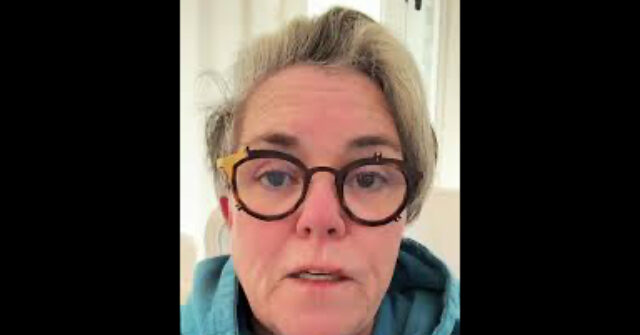In a recent TikTok video, Rosie O’Donnell disclosed that she is experiencing a cold sore, stating, “Look what I have on my lip.” She responded to the speculation about her health by clarifying that she had never suffered from cold sores before this incident, suggesting that the condition seemed to be stress-induced rather than the result of sun exposure, even though she had been outdoors. O’Donnell’s remarks highlight her frustration with being “taunted” by supporters of the MAGA movement, indicating that political tensions have impacted her well-being. This candid admission is emblematic of her ongoing battle against stress, which she attributes, at least in part, to her anxiety over UFO sightings.
In her first TikTok, O’Donnell expressed disbelief that her cold sore was related to her sun exposure. She emphasized her diligence in applying sunscreen during her time in the sun and humorously suggested that she would verify whether she indeed had herpes in the following days. The mention of her cold sore has drawn significant attention and serves as a lens through which to explore her broader emotional and psychological state. Through her multi-faceted approach to sharing personal struggles, she engages a large audience, drawing them into her narrative of stress and public scrutiny.
O’Donnell’s second video confirmed her initial diagnosis of a cold sore, revealing to her 2.5 million followers that stress is a major factor affecting her health. The actress remarked, “Stress can do horrible things,” underscoring a common sentiment about the physical manifestations of emotional distress. Her openness about these issues highlights the interconnectedness of mental well-being and physical health, especially under the pressures of public life and personal challenges. This ongoing discussion also invites her followers to consider their own experiences with stress and its potential impacts.
Addressing her recent stresses, O’Donnell humorously attributed her anxiety to the frequency of alleged UFO sightings. While this might seem outlandish, her statement invites a broader dialogue on the nature of societal fears and how they can manifest in unexpected ways. UFO sightings have increasingly become a topic of public intrigue, and O’Donnell’s comment on them reflects a cultural phenomenon where the unknown evokes anxiety. By connecting her stress to this larger narrative, she emphasizes the ways in which contemporary issues can seep into personal experiences.
Beyond her health disclosure, O’Donnell’s political commentary further fuels the narrative of her stress-induced cold sore. She has been vocal about her opposition to former President Donald Trump, advocating for the abolition of the Electoral College in light of what she perceives to be egregious political outcomes. Despite the impracticality of such a move in the context of a recent election in which Trump won both the Electoral College and the popular vote, O’Donnell’s insistence on this point illustrates her deep-seated frustrations with the political landscape. Her extreme emotional responses to political events reveal how intertwined public figures’ personal lives can become with their political beliefs.
Furthermore, her recent remarks about conspiracy theories related to Trump’s safety and life also add another layer to her public persona. O’Donnell’s earlier claims concerning the alleged assassination attempt against Trump showcase a distressing trend of political discourse where conspiracy theories saturate discussions. As a public figure who often uses her platform for activism, her engagement with both the political and social topics underscores a complex relationship between celebrity culture, mental health, and political anxiety.
In conclusion, Rosie O’Donnell’s revelations about her stress-induced cold sore intertwine personal health issues with larger cultural and political frustrations. Her candidness serves as a reflection of how external societal pressures can impact individual well-being, a common reality in the lives of many public figures who often bear the weight of public scrutiny. By addressing her experiences openly, O’Donnell invites an examination of the connections between stress, societal fears, and the influence of politics, ultimately advocating for greater awareness of mental health in a highly charged environment.

